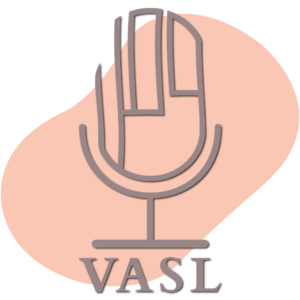The month of June has started and summer vacations are on us. What are your plans? Before we dive into our topic for today lets pause for our weekly inventory check..
Weekly Inventory Check:
As we enter the month of June, a fresh set of goals awaits us. Have you taken the opportunity to reflect on these objectives and consider the direction you intend to go forward with throughout this month? Moreover, have you begun the process of documenting your plans?
Empowering an Informed Society
I have a practice of attending a philosophy meetup on a weekly basis or biweekly. During a recent session, the focal point of discussion revolved around the comparison between Utilitarianism and Kantianism. While I won’t delve into the details of that because this is a topic that deserves its own dedicated attention, the core concept explored was how societal functioning is influenced by its underlying values. To provide a brief overview, Kantianism emphasizes on universal values, such as human rights, while Utilitarianism places emphasis on the means to achieve an end. According to Utilitarianism, if the ultimate goal, be it happiness, species propagation, or any other desired outcome, is maximized, then any actions taken to attain that goal are deemed justified. This justification extends to acts such as killing, transgressions, or even environmental destruction. Essentially, anything becomes permissible as long as it serves the purpose of maximizing the desired outcome.
During our recent discussion, we explored the notion that moral philosophies and societal values serve as mechanisms for crowd control. These frameworks aim to educate and guide individuals to refrain from theft, harm, and to play their part within the economic and cognitive systems. My argument revolves around the idea that we should strive for a society where such mechanisms become obsolete. Crowd control measures should only be necessary when the cognitive capacity of the population is immature or limited. However, in the majority of the Western world, individuals possess the capability to make their own informed decisions.
Should we then argue against the existence of societal-level morals and principles? This question leads us to the importance of an informed society. I believe that if a society is well-informed and fulfills its civic duty, it should not require external moral guidance to navigate. While some principles must be in place to maintain order and protect everyone, these rules should undergo critical analysis and be subject to constant scrutiny by the population.
An example of an informed society would be one where citizens actively engage in politics, possessing a deep understanding of their country’s parliamentary system and the values upheld by political parties. However, in many cases, such as in Pakistan, citizens tend to vote based on superficial reasons or tribal affiliations without truly comprehending party manifestos or policy positions. This reliance on others to make decisions on their behalf or succumbing to peer pressure exemplifies the problem we face. We must take responsibility as citizens and actively engage in the decision-making process, especially during elections.
While it is understandable that individuals have multiple roles and responsibilities, including work, family, and citizenship, it remains our duty to ensure the proper functioning of society by making informed decisions. We should not succumb to peer pressure or make superficial choices. It is crucial to research party manifestos, policies, and the implications of those policies on issues such as immigration and the environment. We must consider how ideologies are translated into action and critically evaluate the capabilities of those in power. This requires looking beyond charismatic leaders and delving into the substance of their plans and the competence of their teams.
What are your thoughts on being informed as a society? Shoot me an email or comment below, would love to hear your thoughts!
Want More?
Read this article here that shows the evidence for better-informed decisions and how it helped societies in general.
While informed decision-making is commonly hailed as a desirable approach, it is important to critically evaluate its limitations. Read here.
As an individual, it’s good to know both the pros and cons of making informed decisions as a society.
Read of the Week
One book that explores the themes of collectivism and the importance of informed decisions in society is “The Wisdom of Crowds” by James Surowiecki. This insightful book offers valuable insights into the power of informed decisions made collectively by a well-informed society.
Thoughts to Leave you With
We find ourselves at a crossroads where the relationship between society and the individual is becoming increasingly blurred. Exploring this dynamic further is an area of interest. I believe that the emphasis on individualism weakens society as a whole because people prioritize their own feelings and neglect the well-being of others. While individual autonomy is essential, we must also recognize the value of collectivism and strive for a balance that allows us to coexist and thrive together as a community.
PSA
Newsletters will be publishing on Sundays from July onwards with podcasts being released every Friday. Stay tuned.


